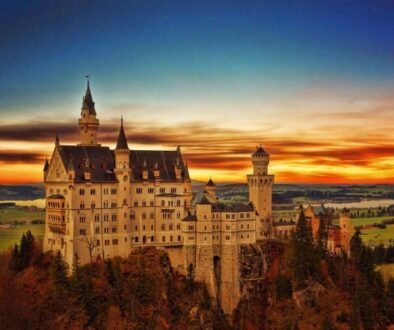Holiday Guide: Best Christmas Markets in Europe
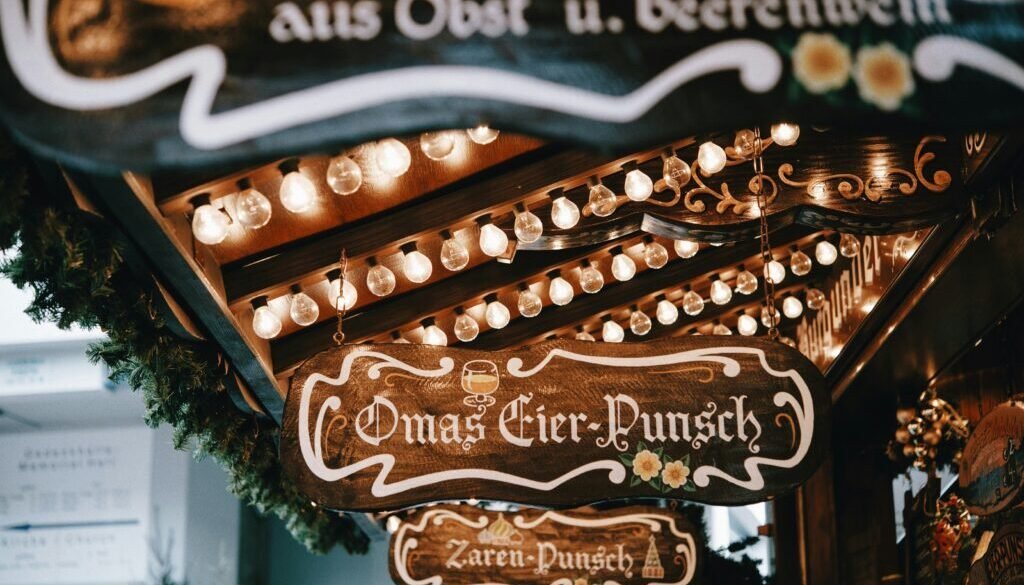
Always wanted to experience the magic of the Christmas markets in Europe? Our comprehensive European Christmas markets guide can help with that.
The European Christmas markets are a beloved tradition that brings the magic of the holiday season to life. With their sparkling lights, festive music, and the aroma of mulled wine and roasted chestnuts in the air, these markets offer a unique and wonderful experience. Whether you’re a seasoned traveler or planning your first visit, this guide will provide you with everything you need to know about the best Christmas markets in Europe.
Table of Contents
History and Tradition of Christmas Markets
How it all began
Christmas markets, or “Weihnachtsmärkte” in German, have a long history dating back to the Late Middle Ages. The tradition began in the German-speaking parts of Europe, particularly in the regions that are now Germany, Austria, and Switzerland. These markets were originally a way for people to buy goods to prepare for the long winter months and to celebrate the Advent season.
Modern Christmas Markets
Over time, the markets evolved into festive gatherings where people could enjoy food, drink, and entertainment. Today, Christmas markets are held in cities and towns across Europe, each with its unique charm and traditions. They typically run from late November until Christmas Eve, providing ample time for visitors to soak in the festive atmosphere.
Best Christmas Markets in Europe
1. Nuremberg, Germany
Nuremberg’s Christkindlesmarkt is one of the oldest and most famous Christmas markets in the world. Located in the city’s main square, Hauptmarkt, this market dates back to the 16th century and attracts over two million visitors each year.
Highlights:
- Nuremberg Lebkuchen: This traditional gingerbread is a must-try.
- Handmade Ornaments: The market is known for its high-quality, handcrafted decorations.
- Christkind Ceremony: The market is opened by the Christkind, a young woman dressed in white who recites a prologue.
2. Vienna, Austria
Vienna’s Christmas markets are renowned for their elegance and grandeur. The main market, Wiener Christkindlmarkt, is held in front of the stunning Rathaus (City Hall).
Highlights:
- Ice Skating: There is a large ice rink in front of the Rathaus.
- Advent Concerts: Enjoy live classical music performances.
- Christmas Lights: The entire city is beautifully decorated with lights.
3. Strasbourg, France
Known as the “Capital of Christmas,” Strasbourg hosts one of the oldest Christmas markets in Europe, dating back to 1570. The market is spread across the city center, with the main hub at Place Kléber.
Highlights:
- Gastronomy: Try local specialties like tarte flambée and Alsatian wine.
- Giant Christmas Tree: A towering tree in Place Kléber is the centerpiece of the market.
- Petite France: Wander through this charming district with half-timbered houses.
4. Prague, Czech Republic
Prague’s Christmas markets are famous for their stunning backdrop, with the main market located in the Old Town Square. The Gothic architecture adds a magical touch to the festivities.
Highlights:
- Czech Delicacies: Enjoy traditional treats like trdelník (chimney cake) and mulled wine.
- Nativity Scene: The market features a beautiful nativity scene with live animals.
- Christmas Tree: A beautifully decorated tree stands in front of the Church of Our Lady before Týn.
5. Copenhagen, Denmark
Tivoli Gardens in Copenhagen hosts one of the most enchanting Christmas markets in Europe. The historic amusement park is transformed into a winter wonderland with lights, decorations, and festive stalls.
Highlights:
- Rides and Attractions: Enjoy the park’s rides and attractions in a festive setting.
- Nordic Crafts: Find unique gifts and decorations inspired by Scandinavian traditions.
- Gløgg: Warm up with a cup of Danish mulled wine.
6. Budapest, Hungary
Budapest’s Christmas markets are held in several locations, with the main market at Vörösmarty Square. The city is beautifully decorated, and the markets offer a mix of traditional Hungarian and European holiday fare.
Highlights:
- Hungarian Cuisine: Try lángos (fried dough) and chimney cake.
- Ice Rink: Skate in front of St. Stephen’s Basilica.
- Handcrafted Gifts: Find unique, locally made gifts and decorations.
7. Brussels, Belgium
The Winter Wonders event in Brussels includes a Christmas market, ice rink, light shows, and a Ferris wheel. The market is spread across several locations, with the main hub at Grand Place.
Highlights:
- Belgian Chocolates: Indulge in high-quality chocolates and sweets.
- Light and Sound Show: A spectacular show takes place at Grand Place.
- International Stalls: Discover a variety of international foods and crafts.
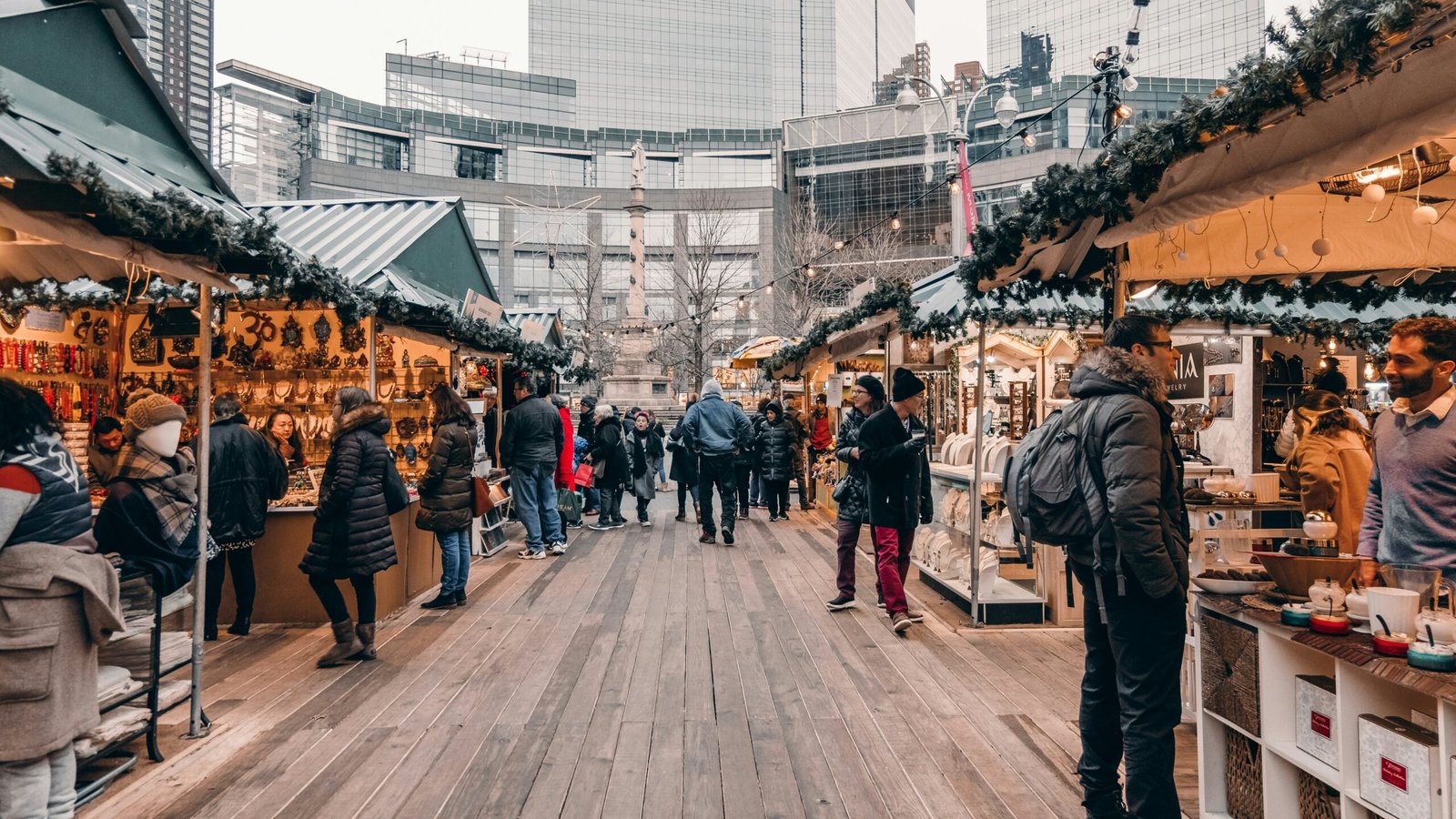
Planning Your Visit
When planning a trip to the European Christmas markets, there are several things to consider to ensure a memorable and enjoyable experience.
1. Timing
The majority of Christmas markets open in late November and run until Christmas Eve. Some markets extend into the New Year, especially in larger cities. Weekdays tend to be less crowded than weekends, so plan your visit accordingly if you prefer a more relaxed atmosphere.
2. Accommodation
Christmas markets attract many visitors, so it’s wise to book your accommodation well in advance. Consider staying in centrally located hotels or guesthouses to make it easy to visit multiple markets and enjoy the city’s other attractions.
3. Transportation
Many European cities have excellent public transportation systems, making it easy to get around. Consider purchasing a city pass that includes public transport and entry to various attractions. If you plan to visit markets in different cities, look into regional train passes or budget airlines.
4. Weather
European winters can be cold, especially in northern and central Europe. Be sure to dress warmly with layers, hats, gloves, and scarves. Comfortable shoes are a must, as you’ll likely be doing a lot of walking. Popular and reliable examples include On Clouds or Brooks. Remember to wear a pair of warm, thick socks!
5. Currency
While many Christmas market vendors accept credit cards, it’s always a good idea to have some local currency on hand for smaller purchases. ATMs are widely available, but be mindful of any foreign transaction fees your bank may charge.
What to Buy
A shopper’s paradise, Christmas markets offer a wide range of unique and handcrafted items. Here are some popular items to look for:
1. Ornaments and Decorations
From delicate glass baubles to hand-carved wooden figures, Christmas markets offer a variety of beautiful decorations. Look for items that reflect the local culture and craftsmanship.
2. Food and Drink
Many markets sell traditional holiday foods that make great gifts or souvenirs. Popular items include gingerbread, stollen, marzipan, and local specialties. Mulled wine, or “Glühwein,” is a favorite at many markets and is often sold in collectible mugs.
3. Handcrafted Gifts
Support local artisans by purchasing handmade gifts such as jewelry, pottery, textiles, and toys. These unique items are often of high quality and make thoughtful presents.
4. Clothing and Accessories
Markets often feature stalls selling warm clothing and accessories like hats, scarves, and gloves. Look for items made from local materials, such as wool or alpaca.
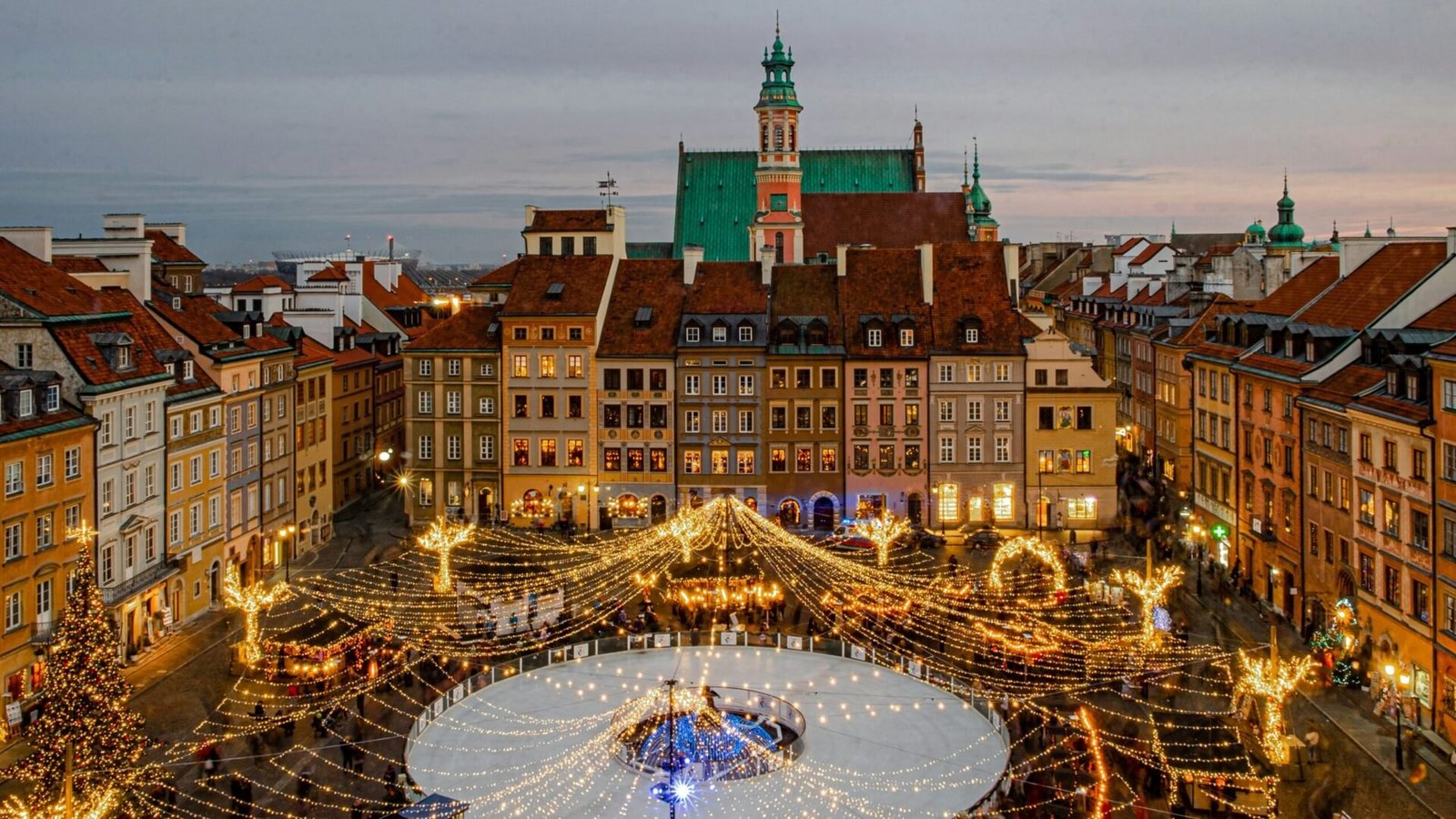
Tips for Enjoying the Markets
1. Arrive Early
Christmas markets can get very crowded, especially in the evenings and on weekends. Arriving early in the day can help you avoid the busiest times and give you a chance to explore at a leisurely pace.
2. Stay Hydrated and Warm
Walking around in the cold can be tiring, so be sure to stay hydrated and take breaks as needed. Many markets have cozy areas where you can warm up with a hot drink and a snack.
3. Try the Local Specialties
One of the best parts of visiting Christmas markets is sampling the local food and drink. Be adventurous and try some regional specialties you might not find at home.
4. Take Your Time
There’s no need to rush through the markets. Take your time to browse the stalls, enjoy the entertainment, and soak in the festive atmosphere.
5. Respect Local Customs
Different countries and regions have their own customs and traditions, so be respectful and mindful of local etiquette. For example, in some places, it’s customary to return your empty Glühwein mug to get your deposit back.
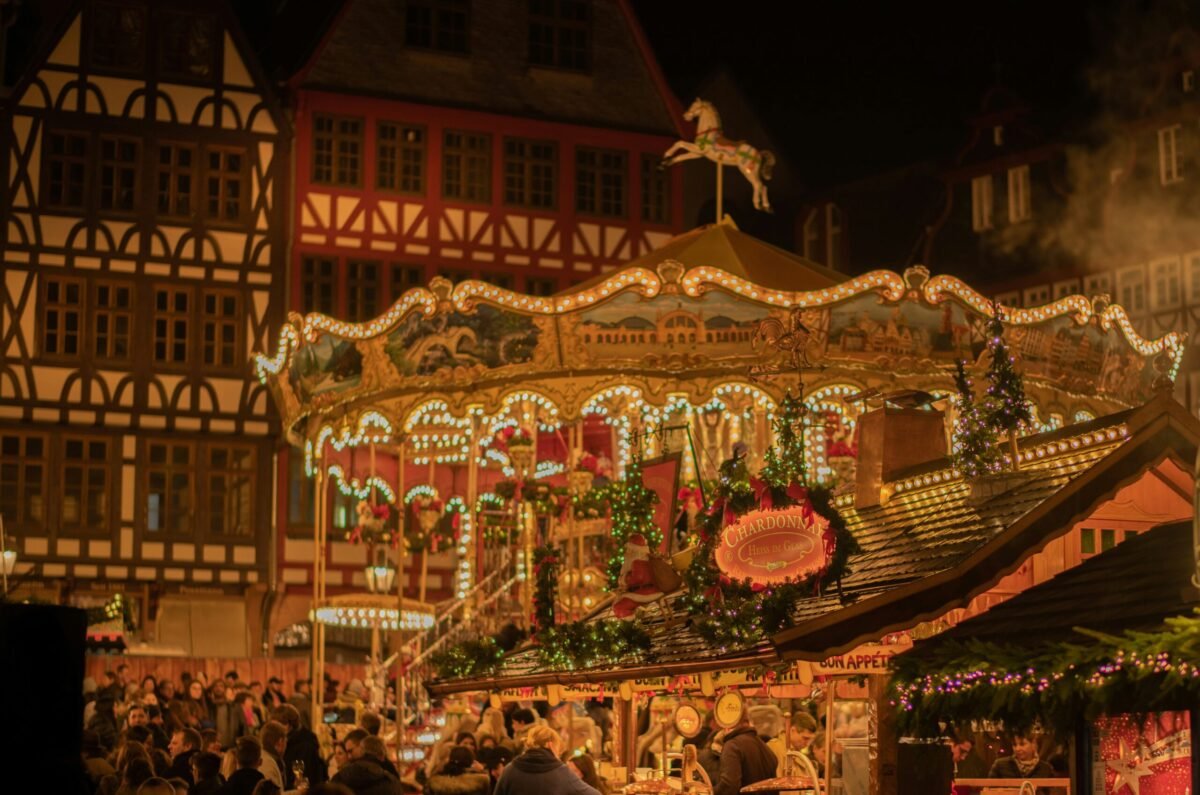
Ready to Travel?
Visiting the European Christmas markets is a magical experience that should be on every traveler’s bucket list. With their festive atmosphere, delicious food, unique gifts, and beautiful decorations, these markets capture the true spirit of the holiday season. Whether you’re wandering through the historic streets of Nuremberg, skating in front of Vienna’s Rathaus, or enjoying a warm cup of Gløgg in Copenhagen, you’re sure to create memories that will last a lifetime. Ready to start planning your winter adventure? Check out sites like Booking.com or Airbnb to find affordable accommodation. Happy and safe travels friends! 🌍❄️
Need help with packing? Check out our essential packing guide for tips and recommendations.
Find out what tech and gear the modern traveler is using in our comprehensive guide.
FAQ
Q: What are the best Christmas markets in Europe?
Some of the best Christmas markets in Europe include Nuremberg (Germany), Vienna (Austria), Strasbourg (France), Prague (Czech Republic), Copenhagen (Denmark), Budapest (Hungary), and Brussels (Belgium).
Q: When do the Christmas markets open?
Most Christmas markets open in late November and run until Christmas Eve. Some markets, especially in larger cities, may extend into the New Year.
Q: What should I wear to the Christmas markets?
Dress warmly in layers, including a hat, gloves, and scarf. Comfortable shoes are also essential, as you’ll likely be doing a lot of walking.
Q: Can I use credit cards at the Christmas markets?
Many vendors accept credit cards, but it’s a good idea to have some local currency on hand for smaller purchases.
Q: Are Christmas markets family-friendly?
Yes, Christmas markets are generally very family-friendly, with many offering activities and attractions for children, such as carousels, ice skating rinks, and live entertainment.
Q: What kinds of food and drink can I find at the Christmas markets?
You can find a wide variety of traditional holiday foods and drinks, such as mulled wine (Glühwein), gingerbread, roasted chestnuts, sausages, and local specialties unique to each region.
Q: How can I make my visit to the Christmas markets more sustainable?
Use public transportation, bring reusable items, support local artisans, minimize food waste, and stay in eco-friendly accommodations.
Q: Are the Christmas markets accessible for people with disabilities?
Many Christmas markets are accessible, but it varies by location. It’s a good idea to check the accessibility information for each market in advance and contact local tourist information centers for assistance.
Q: What other activities can I do while visiting the Christmas markets?
In addition to shopping and eating, you can enjoy ice skating, live music and performances, city tours, and visits to local museums and galleries.


